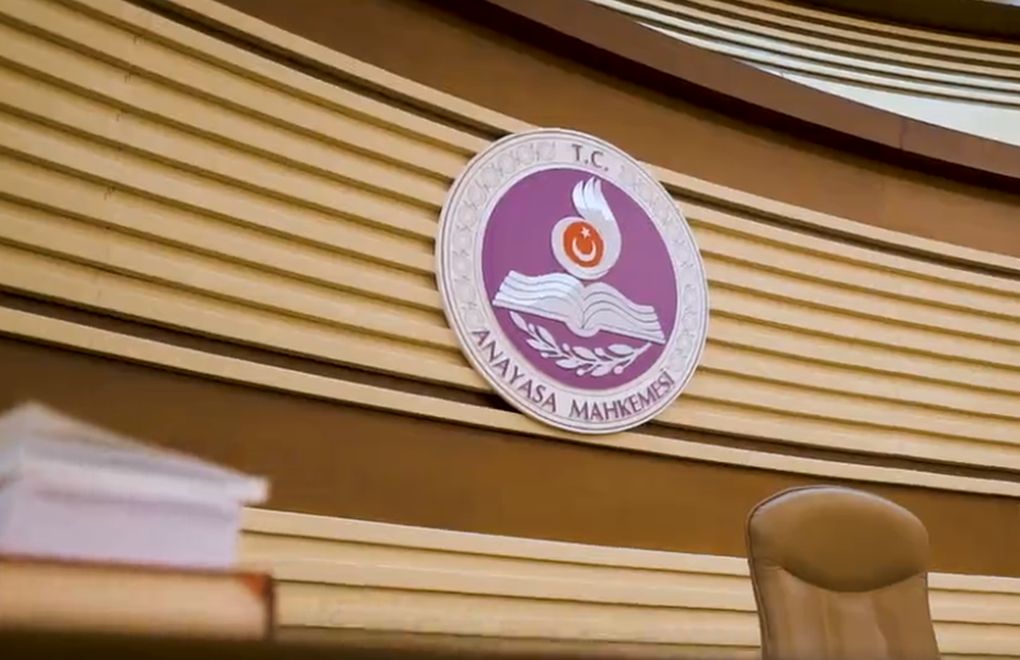Click to read the article in Turkish / Kurdish
After two separate individual applications regarding the right to a fair trial, the Constitutional Court has ruled for the retrial of the cases for the elimination of the violations.
Ruşen Bayar and Özgür Uyanık, who were convicted and 2008 and 2009, respectively, had filed the applications, alleging that the statements they had given under torture and without the presence of a lawyer had been used as grounds for their convictions.
The top court's justified rulings were published in the Official Gazette today (August 25). Both cases will be retried and the applicants will be paid 20,000 lira each for immaterial damages.
Right to avoid self-incrimination
In the decision regarding Bayar's application, the court said it was not enough to grant a suspect or a defendant the right to defend themselves, and this right includes having an attorney, as stated in article 36 of the Constitution.
"The person charged with a crime has the right to defend themselves personally or to benefit from the assistance of a lawyer of their choice, within the scope of the right to a fair trial."
In the decision regarding Uyanık's application, the high court said this right should be provided starting from the suspect's first interrogation by security officers.
"Providing the suspect the right access to a lawyer from the first time they are interrogated by the law enforcement is necessary in terms of the rights to avoid self-incrimination and remain silent, as well as of the right to a fair trial having a protective function in general. Because the evidence obtained at this stage determines the framework in which the crime in question will be addressed during the trial."
Considering that suspects may find themselves in a vulnerable situation at this stage of the criminal proceedings, the high court stated that this situation can only be duly compensated with the legal assistance of a lawyer.
Rejection of the appeal
The court had ignored an European Court of Human Rights (ECtHR) decision regarding Bayar's case, and issued a verdict based on the case file rather that ruling for a retrial of the case.
This procedure was unlawful, the Constitutional Court ruled.
"The applicant's statements obtained during the investigation phase without the presence of his lawyer set the basis for the conviction. In such cases, the relevant judicial authorities are obliged to act in a way to eliminate the violation and its consequences, taking into account the nature of the admitted violation.
"The Court, however, rejected the request for a retrial by examining the file. The court decided that the confession of the defendant at the investigation stage should be removed from the justification of the decision and that the other evidence was sufficient for the alleged crime to be proven."
However, the top court noted, in order to fulfill the requirements of the mentioned ECtHR decision, the case should have been retried by granting the applicant the right to defend himself.
What happened?
The now-shut down İstanbul 12th Heavy Penal Court on February 13, 2009 sentenced Ruşen Bayar to life imprisonment for "attempting to separate a part of the territory under the sovereignty of the state from the state administration."
The Court of Cassation upheld the verdict on April 27, 2010.
Bayar then filed an application with the ECtHR, stating that the court verdict was based on statements taken by the police without the presence of a lawyer.
In its decision Rusen Bayer/Turkiye (B. No: 2525308, 19/2/2019), the European Court concluded that the statements taken without a lawyer's presence harmed the fairness of the trial and paragraphs 1 and 3 of the article 6 of the ECHR had been violated.
The local court, however, rejected Bayar's application for his retrial, giving the same verdict by examining the file. After his appeals were rejected, Bayar filed an individual application with the Constitutional Court.
The now-shut down İstanbul 17th Heavy Penal Court on April 30, 2008, sentenced Özgür Uyanık to life imprisonment for "attempting to overthrow the constitutional order by force."
The Court of Cassation upheld the verdict on July 6, 2009.
Filing an application with the ECtHR, Uyanık alleged that his statements taken under torture were cited as evidence for his conviction, which violated the prohibition of torture, guaranteed by article 3 of the ECHR.
In its decision dated May 28, 2019, the European court ruled that retrying the case would be an effective was to eliminate the violation. However, the local court repeated its decision by examining the case file again. Uyanık then filed an individual application with the Constitutional Court. (AS/VK)












